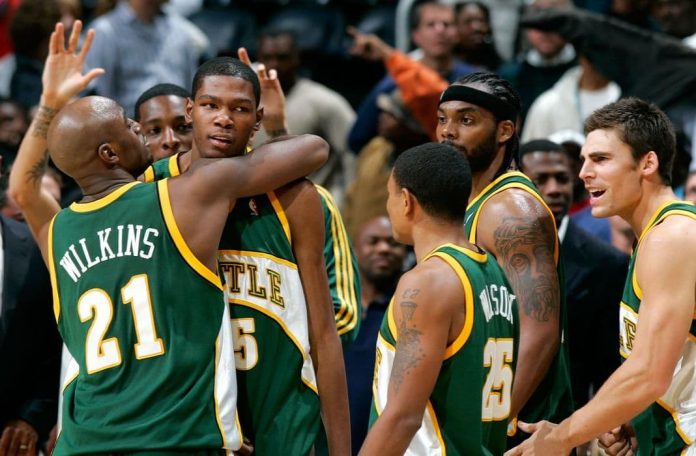Relocation and Expansion
The NBA and NFL are worth billions of dollars. Per Forbes, the average NBA team is worth $1.65 billion, the average for an NFL team being $2.5 billion. The gap between the two is narrowing substantially, though. Do some multiplying and you get the grand total worth of the two leagues of $132.8 billion. That’s a lot of money. However, that doesn’t stop teams from trying to get bigger. Relocation and expansion are risks that owners take aiming at growing. At the end of the day, they are businesses.
Why relocate?
Over the years, many franchises have moved to bigger markets. The most recent examples being the Rams and Chargers moving to LA from St. Louis and San Diego, respectively, as well as the Raiders getting ready to move to Las Vegas. The Oklahoma City Thunder moving from Seattle is the most recent example of an NBA relocation. These prospects of more teams in each league moving is a genuine possibility. Many of the smaller market teams in each league are “at risk of” or “optimistically exploring the idea of” relocation. This depends on your own individual perspective. If we take the NBA first: while New Orleans, Memphis, and Oklahoma City have the smallest markets in the league, the figures may not tell the entire story.
The Clippers and Nets both have a minimal share of L.A. and New York, respectively. Even Sacramento feels like having an unnecessary extra Californian team. Team history is another important factor. Seven of the thirty NBA teams have never reached the Finals. Of those, only Toronto, Minnesota, and Denver have large enough market shares to justify keeping them out of this conversation. Relocation and expansion are never fully off the table if history tells us anything.
With business potential in mind, teams that aren’t making a lot of money would be more inclined to relocate. The Bucks have the lowest revenue in the NBA at $179 million, and other notable teams that have low incomes include the Hornets ($202M), Nuggets ($202M), Pelicans ($204M), and Grizzlies ($206M). None of these teams are tanking, so that doesn’t explain their low revenues. If owners are looking to make more money, relocation could be a serious consideration.
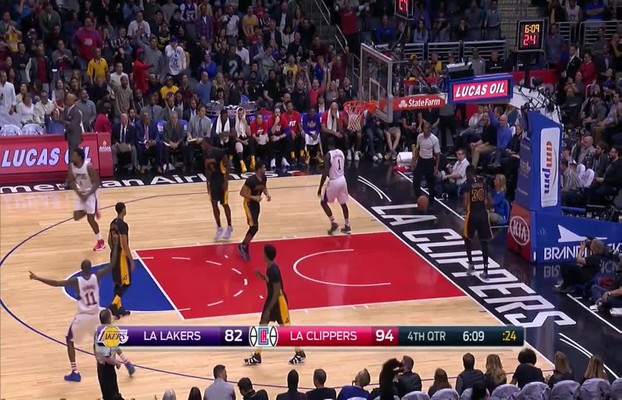
Market share versus historic success.
That leaves the Clippers, Hornets, Grizzlies, and Pelicans at a higher risk. The Kings, Bucks, Nets, Suns, Jazz, Magic, Hawks, Pacers, and Trail Blazers all have reasonably mediocre rolls of honor. Go back to the market shares of each team, and that means that out of the ten smallest markets, the Kings, Bucks, Jazz, Pacers, and Trail Blazers join the Clippers, Hornets, and Grizzlies as at-risk teams for relocation.
If we were to look at the NFL, similar criteria would apply. The smallest markets are New Orleans, Tennessee, Kansas City, and Buffalo. Look at their histories. If you find the balance between market and historical values, you’d find Jacksonville, New Orleans, Tennessee, and possibly Kansas City as teams of lesser historic value.
Location, location, location.
To figure out how plausible it is for a team to relocate, we have to take it on a location-by-location basis. Logically, you wouldn’t move the Kansas City Chiefs just over west to Denver. You’d have to tap into a ready-made sporting market, without having a rival too close to your new home. If we were to take Vancouver and the NBA as an example, it may be more plausible to move the Thunder to Vancouver than it would be for the Pelicans to do so, given that Seattle is pretty close to Vancouver, and other than the few seasons the Grizzlies were in Vancouver, the next closest team were the Sonics.
Meanwhile, the Pelicans only really have a history in New Orleans. Hypothetically speaking, they have the most freedom to move out of any team in the NBA. A similar story applies to the Jaguars or Titans in the NFL. Although established for longer, Jacksonville and Tennessee both only have a relatively short history in the league, and uprooting them (disregarding team’s current success) would be much easier than it would for Kansas City.
Seattle seems to be the prime location to bring an NBA team. It’s comfortably the largest market in America without a Jerry West logo donning the city. Aside from OKC who relocated from Seattle a decade ago, the Kings put together a solid plan to relocate there a few years ago, while the owners of the Clippers and Trail Blazers both have an affinity with the city. The market is there if an owner is willing to take that risk. While relocation could be easy enough for Seattle, both relocation and expansion are real options.
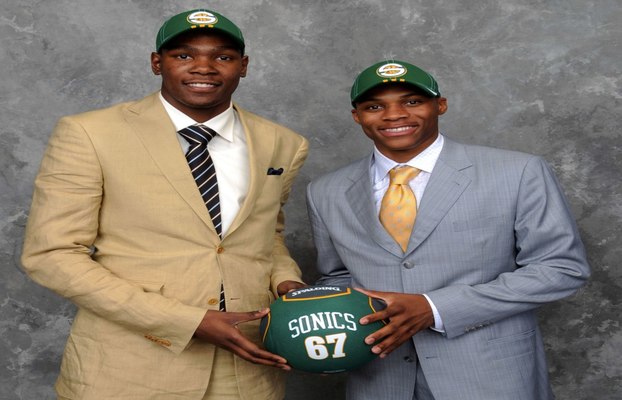
A (supposed) game of the people.
If we were to look at cities without an NFL team, surely Portland has to be in with a shout. According to a Nielsen survey, they have the 24th biggest TV market in the country, ahead of the likes of Baltimore, Cincinnati, and the incoming NFL city of Las Vegas. None of the NFL, MLB, or NHL have franchises in the city. This leaves a huge market gap for an NFL team to enter the frame. Just please, don’t go cutting timber at your matches *cough* Portland Timbers *cough*.
Go global!
Vancouver never really got the chance it deserved to have a basketball team, but if it were to get a second chance, it would have to be at the expense of Seattle. Now that the SuperSonics are no longer nearby, the next NBA team in the city would be given a better chance to flourish without a direct rival in the region.

Mexico City could be an absolute gold-mine for either the NBA or NFL if they wanted to explore that option. The nearest major sports city to Mexico is Dallas, and there’s an entire nation without a second sport to soccer, waiting for its chance. While there’s the (small) risk that maybe Mexico wouldn’t buy into the American sports, there are larger problems involving finances, politics, and visas. It could be very difficult for Mexican fans to get into the USA to watch their team in away matches.
London calling?
If you wanted the full international experience, London seems to be the most realistic possibility. Every year, there’s one NBA game and multiple NFL games played during the regular season in London. The city is clearly capable of hosting a team. However, it’s just blatantly unfair to expect NBA teams to juggle 80-odd games with what is anywhere between a five and thirteen-hour flight each way.
It’s slightly possible that an NFL team could move to London given that they have substantially fewer games in their regular season. The owner of the Jaguars, Shahid Khan, has openly discussed bringing the team to London. He already owns Fulham F.C. in the heart of the city. Relocation and expansion are both available as options for a London team.
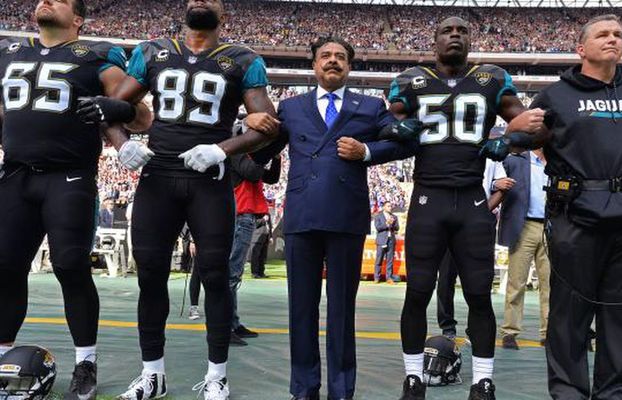
Who gets to play some football?
If we were to look at some of the most likely NFL teams to move cities, we have to look at the Buffalo Bills. While their owners have consistently told their fans that they’re not going anywhere, money talks. The Bills are currently the least valuable team in the NFL, and just up north of them, there’s Toronto who would only love to have an NFL team in the city. The Bills could get away with just building a new stadium, but Toronto could be ready to scare the Buffalo fans. Luckily for Buffalo, there aren’t many other viable options tailored to the Bills. This could give them a fighting chance at keeping the team.
Could we expand?
When it comes to relocation, the answers are mostly there. If a team moves from East to West, or vice-versa, teams can be moved between conference or division to accommodate such a move. A different story applies to expansion. When looking at how expansion may affect the leagues, it’s difficult to know where to start. Not only do you have to try to expand anywhere between two and six teams at one time in the NBA to suit divisions, and between two and eight in the NFL. Relocation and expansion mean shuffling teams around regardless, but expansion means taking numbers into account too.
When more teams enter the league, expansion drafts have to be done to stretch the talent in the league to help the new teams have some level of success. Where the new teams fit into the draft without having an unfair advantage also causes a hindrance. Back when Charlotte joined the NBA in 2004, teams were allowed to protect eight players from their squad. Anyone else was made available to be drafted.
We gotta get good!
Given how top-heavy the NBA is currently, it could be a bad idea to allow more teams in. The talent pool only stretches so far. A new expansion draft would have to allow current teams to protect fewer players and would have to be timed well enough to allow the new teams a shot at top free agents. A similar story applies to the NFL. While many top quality players are in both leagues, there are also a lot of players who are role players or only fill roster spots. Relocation and expansion provide different challenges. Clearly, expansion is the more problematic scenario.
There are already too many bad teams in the NBA right now, at least in the Eastern Conference. Essentially one-third of the conference is too poor for its own good. Only one or two teams will be as bad in the West. While there are fewer games in the NFL, the Cleveland Browns had not won a single match since 2015 before this season. If either league were to consider further expansion with the current talent pool, they’d have to genuinely consider re-structuring the league into tiers. A prime example would be soccer, with promotion and relegation between tiers each season.
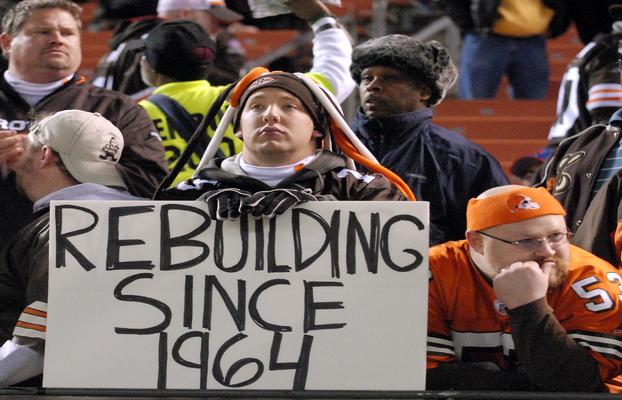
Adam Silver has stated before on the C.J. McCollum podcast that expansion in the league is “inevitable,” even with the current domination of the Golden State Warriors. While relocation seems like a much more plausible scenario in both leagues, we have to be prepared to see more teams in each league. What would expansion entail for how each league is run?
The big changes needed for relocation and expansion
Many options exist. For the NFL, they could potentially survive without any sort of drastic change. A 16 game schedule is much easier to build around than the 82 played in the regular season of the NBA. If the NBA were to expand, the number of games couldn’t increase with it. The 82 regular season games are already too many, and adding more would be an unfair burden, even with the possibility of extra pay from the extra revenue the league would gain from having more teams.
Maybe they change it to a three-game series against divisional rivals, two-game series against conference rivals, and a single-game against teams from the other conference. They could also introduce a promotion/relegation system. The options are endless. But it certainly has to be a different option if the NBA expands.
Conclusion
Relocation and expansion have rewards and many of them. A new team can give financial benefits to team cities and owners. Franchises can boost the morale of a struggling area. Sport can unite communities and change lives. That being said, the NFL and (especially) the NBA would have to change dramatically to accommodate such changes. It’s not entirely beyond the realm of possibility that we see these adjustments soon, but only time will tell whether or not it’s deemed a risk worth taking.
What are your thoughts? Would you like to see an NBA or NFL team in your city? Is it too soon for further relocation and expansion? Drop a comment or DM @OB_PerSources on Instagram or Twitter.
Also, check out @PersourcesSam on Twitter.

